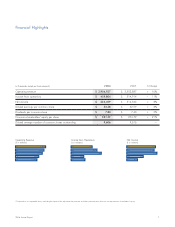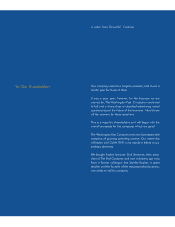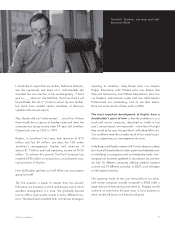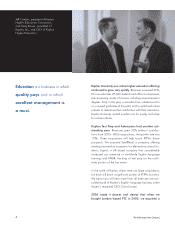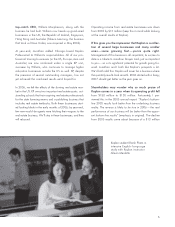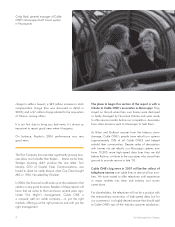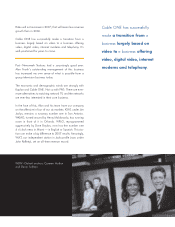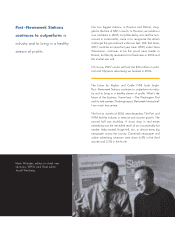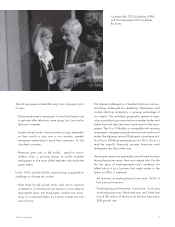Washington Post 2006 Annual Report Download - page 7
Download and view the complete annual report
Please find page 7 of the 2006 Washington Post annual report below. You can navigate through the pages in the report by either clicking on the pages listed below, or by using the keyword search tool below to find specific information within the annual report.
55
top-notch CEO,William Macpherson, along with the
business he had built. William now heads up good-sized
businesses in the UK, the Republic of Ireland, Singapore,
Hong Kong and Australia (Tribeca Learning, the business
that took us Down Under, was acquired in May 2006).
At year-end, Jonathan added Chicago-based Kaplan
Professional to William’s responsibilities. All of our pro-
fessional training businesses (in the US, Europe, Asia and
Australia) are now combined under a single KP unit,
overseen by William, who continues to manage higher
education businesses outside the US as well. KP, despite
the presence of several outstanding managers, has not
yet achieved the combined results we’d hoped for.
In 2006, we felt the effects of the slowing real estate mar-
ket in the US. KP owns two important real estate assets: out-
standing schools that train aspiring real estate professionals
for the state licensing exams and a publishing business that
includes real estate textbooks. Both these businesses start-
ed looking bleak in the early months of 2006; by year-end,
few new would-be agents were hitching their wagons to the
real estate business. We’ll stay in these businesses, and they
will rebound.
Operating income from real estate businesses was down
from 2005 by $13 million (keep this in mind while looking
at the overall results at Kaplan).
If this gives you the impression that Kaplan is a collec-
tion of several large businesses and many smaller
ones — some growing fast — you’re quite right.
Management of this business is all-important; its success to
date is a tribute to Jonathan Grayer. And, just as important
to you — so is its significant potential for growth going for-
ward. Jonathan and I both like Kaplan’s prospects a lot.
We’d both add this: Kaplan will never be a business where
the quarterly results look smooth. 2006 started with a bang;
2007 should get better as the year goes on.
Shareholders may wonder why so much praise of
Kaplan comes in a year when its operating profit fell
from $158 million to $130 million. Fortunately, I pre-
viewed this in the 2005 annual report: “Kaplan’s bottom-
line 2005 results look better than the underlying business
reality.The reverse is likely to be true in 2006 — the real
performance of our business will be better than the appar-
ent bottom-line results” (emphasis in original). The decline
from 2005 results came about because of a $13 million
Kaplan student Khanh Pham in
intensive English-language
study with Kaplan instructor
Allison Menditto



